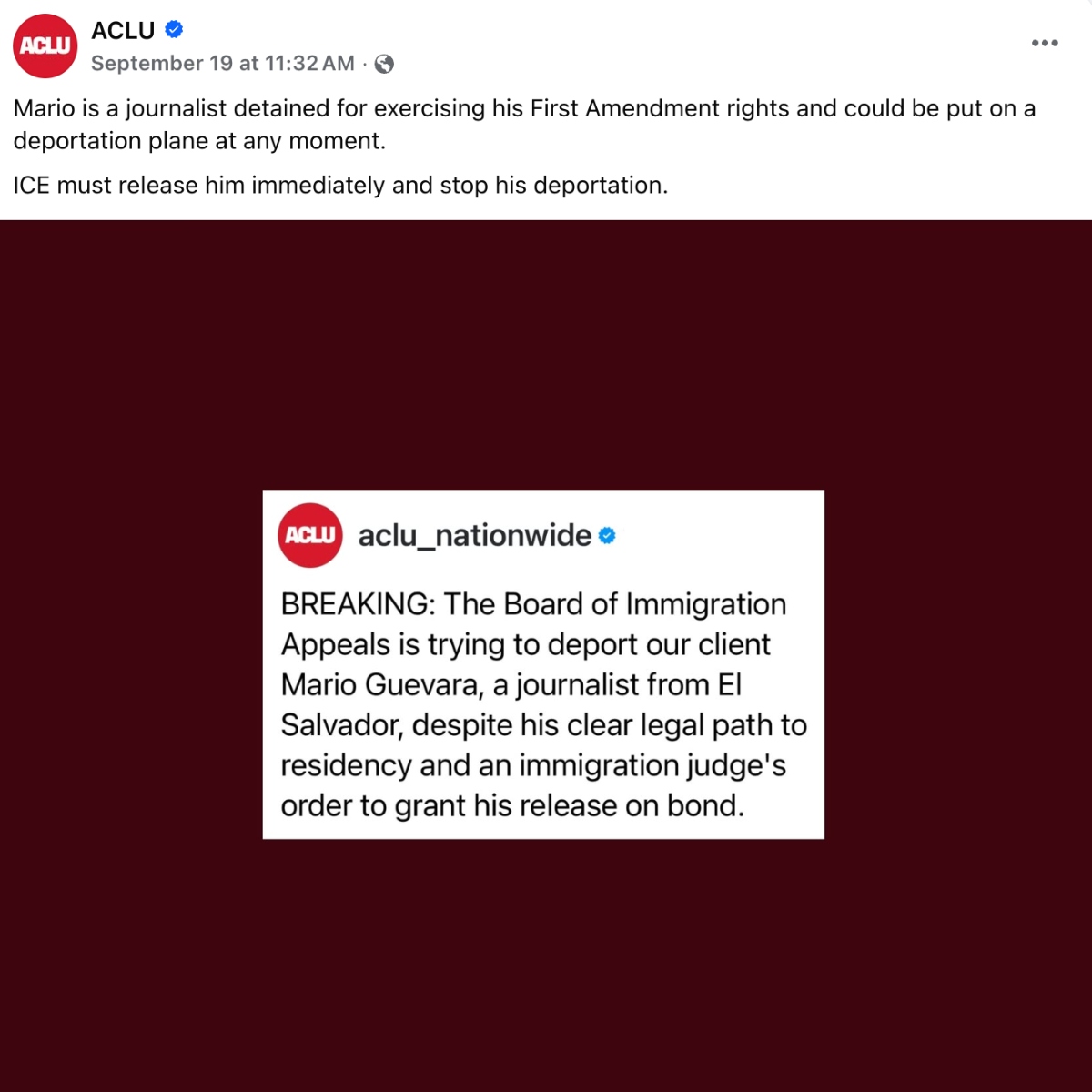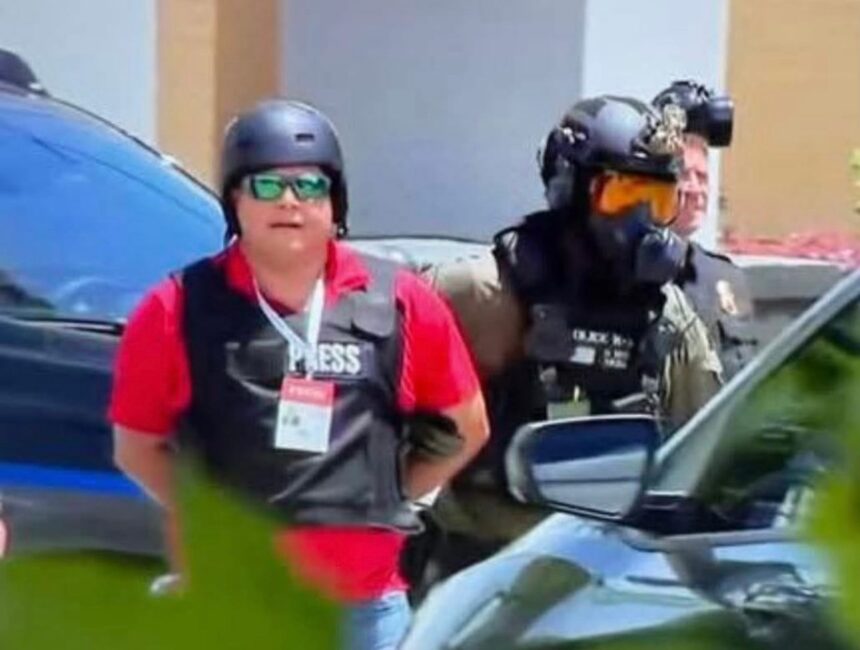The situation of Salvadoran journalist Mario Guevara, detained since June 14, 2025 in Georgia, has taken a critical turn.
An immigration appeals court ordered his deportation, even though an immigration judge had already granted his release on bond and civil rights organizations insist that he has a clear legal path to permanent residency in the United States.
ACLU: “They are trying to remove him unjustly”.

The American Civil Liberties Union (ACLU) confirmed to Telemundo News that it requested an emergency hearing to stop Guevara’s deportation.
In an e-mailed statement, the organization denounced that the government is seeking to expel the journalist in violation of previous immigration court rulings.
“The Board of Immigration Appeals is trying to deport our client Mario Guevara, despite the fact that he has a clear legal path to residency and that an immigration judge has ordered his release on bond,” ACLU attorneys noted.
The case has become a banner for immigrant advocacy and press freedom groups, who see the situation as an attack on critical journalism and a risk for other journalists covering law enforcement operations.
Who is Mario Guevara?
Mario Guevara, 47, came to the United States more than two decades ago fleeing violence in El Salvador.
He eventually settled in Atlanta, Georgia, where he gained recognition as a freelance journalist specializing in covering immigration issues, particularly Immigration and Customs Enforcement (ICE) raids.
His direct style and live broadcasts on social networks allowed him to connect with thousands of migrants, who found in his reports a window of immediate information on operations, arrests and legal proceedings.
His work has made him a key voice in the Hispanic community in metro Atlanta.
His arrest during a protest in Atlanta
On June 14, 2025, the Salvadoran was live-streaming a protest in DeKalb County, Georgia, when he was arrested by police on charges of obstruction and unlawful assembly.
His arrest occurred while he was documenting clashes between demonstrators and authorities.
Although the county dropped the charges against him, ICE held him in custody at the Folkston Detention Center in southeast Georgia.
Since then, his case has generated national and international concern about the apparent criminalization of journalistic work.
Complaints from international organizations
The Committee to Protect Journalists (CPJ) has repeatedly expressed its alarm.
In a recent statement, the organization said that Guevara is “the only journalist imprisoned in the United States” and now faces imminent deportation for events directly related to his reporting.
“Guevara’s case sets a dangerous precedent and represents a risk not only for journalists, but potentially for anyone who records the authorities,” CPJ warned.
The organization pointed out that allowing deportation under these conditions could open the door to censorship and harassment against communicators throughout the country.
Mario Guevara’s Deportation Ordered
For now, Mario Guevara’s future hangs in the balance. The ACLU and other advocates hope the emergency hearing can reverse the deportation order.
While his family and colleagues maintain public campaigns to make his situation visible.
The U.S. Hispanic community is closely following the case, which combines two sensitive realities.
On the one hand, the struggle of immigrants to remain in the country.
On the other hand, the defense of press freedom in a context in which recording and documenting the actions of the authorities has become increasingly crucial.
The legal outcome in the coming days will set a precedent that could impact not only undocumented migrants, but also journalists and activists who exercise their right to document government actions in the United States.
El caso de Guevara siembra un precedente peligroso y representa un riesgo no solo para periodistas, sino potencialmente para todo aquel que grabe a las autoridades
CPJ























